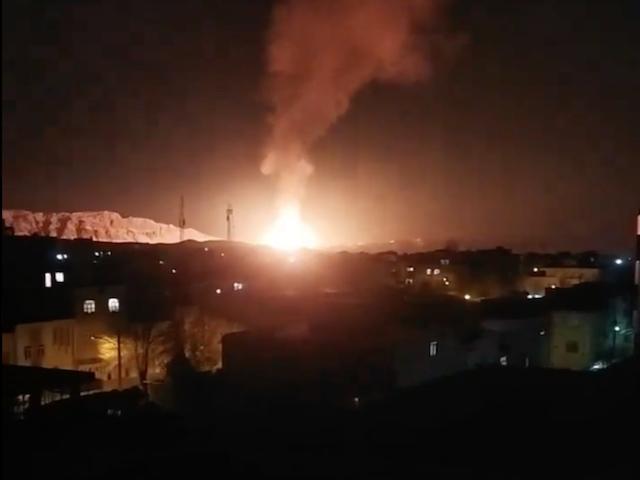Iran's Oil Minister Javad Owji accused Israel of orchestrating a sabotage operation against an Iranian natural gas pipeline, leading to a series of explosions a week prior. This allegation comes amid ongoing hostilities between Israel and Hamas in the Gaza Strip, further intensifying the animosity between Iran and Israel, two longstanding regional adversaries.
According to Owji, who made his claims in a statement to Iran's state-run IRNA news agency, the attack was a deliberate attempt by Israel to disrupt gas services and jeopardize the distribution of gas to Iranian provinces. "The explosion of the gas pipeline was an Israeli plot," he asserted, suggesting that the operation aimed to create domestic unrest by targeting critical infrastructure. Despite the gravity of his allegations, Owji did not provide concrete evidence to back his claims.
🚨🇮🇷 SABATAGE IN IRANIAN GAS PIPLINE EXPLISION
— Mario Nawfal (@MarioNawfal) February 15, 2024
Iran's oil minister tells state TV 'sabotage' is to blame for two explosions along a main gas pipeline network.
Source: Reuters https://t.co/X6vjKVDGsS pic.twitter.com/8jAFX2oJk6
Israel, known for its policy of neither confirming nor denying its covert operations abroad, has not responded to these accusations. Prime Minister Benjamin Netanyahu's office, when approached for a comment, remained silent. Netanyahu, who has been vocally critical of Iran, has yet to address the allegations directly.
The targeted pipeline, an essential conduit for natural gas stretching from Iran’s western Chaharmahal and Bakhtiari province to cities along the Caspian Sea, plays a critical role in Iran's energy infrastructure. The pipeline, which spans approximately 1,270 kilometers (790 miles) and originates from Asaluyeh — a key center for the offshore South Pars gas field — was hit by explosions on February 14.
Iranian media: This is one of the points where an explosion occurred in the gas pipeline line in southern Iran. pic.twitter.com/1B8dxE3ywA
— Shiri_Sabra (@sabra_the) February 14, 2024
Owji drew parallels between this incident and previous unexplained attacks on gas pipelines in 2011, hinting at a pattern of sabotage activities around significant national dates, such as the anniversary of Iran's 1979 Islamic Revolution. These recent blasts occurred close to the 45th anniversary of the revolution, raising suspicions of a targeted campaign against Iran's energy sector.
This accusation comes against a backdrop of increasing international concern over Iran's nuclear ambitions. The director of the United Nations' nuclear watchdog recently highlighted Iran's opacity regarding its nuclear program, especially following revelations by a former Iranian official about the country's capability to assemble a nuclear weapon. Israel has historically targeted Iran's nuclear facilities, viewing Iran's nuclear advancements as a direct threat to its security.
Blasts hit Iran’s natural gas pipeline in act of ‘sabotage:’ official https://t.co/1jXgUEduFM pic.twitter.com/JT2d14Wjuq
— New York Post (@nypost) February 14, 2024
Moreover, the regional dynamics are further complicated by Iran's support for militant groups such as Hezbollah in Lebanon and the Houthi rebels in Yemen, both of which have launched attacks against Israeli interests amid the Gaza conflict. The Houthis, in particular, have been implicated in attacks on commercial shipping, drawing military responses from the United States and the United Kingdom. Despite sustained airstrikes, the Houthi rebels have demonstrated continued capacity to execute significant military operations, including damaging a ship in a strategic maritime passage and downing an expensive American drone.
This intricate web of military actions, covert operations, and diplomatic tensions underscores the volatile nature of Middle Eastern geopolitics, where actions and accusations can rapidly escalate into broader regional conflicts. The alleged Israeli sabotage of Iran's gas pipeline not only highlights the ongoing shadow war between Israel and Iran but also raises questions about the stability of global energy supplies and the potential for further escalation in a region already beset by conflict and rivalry.


